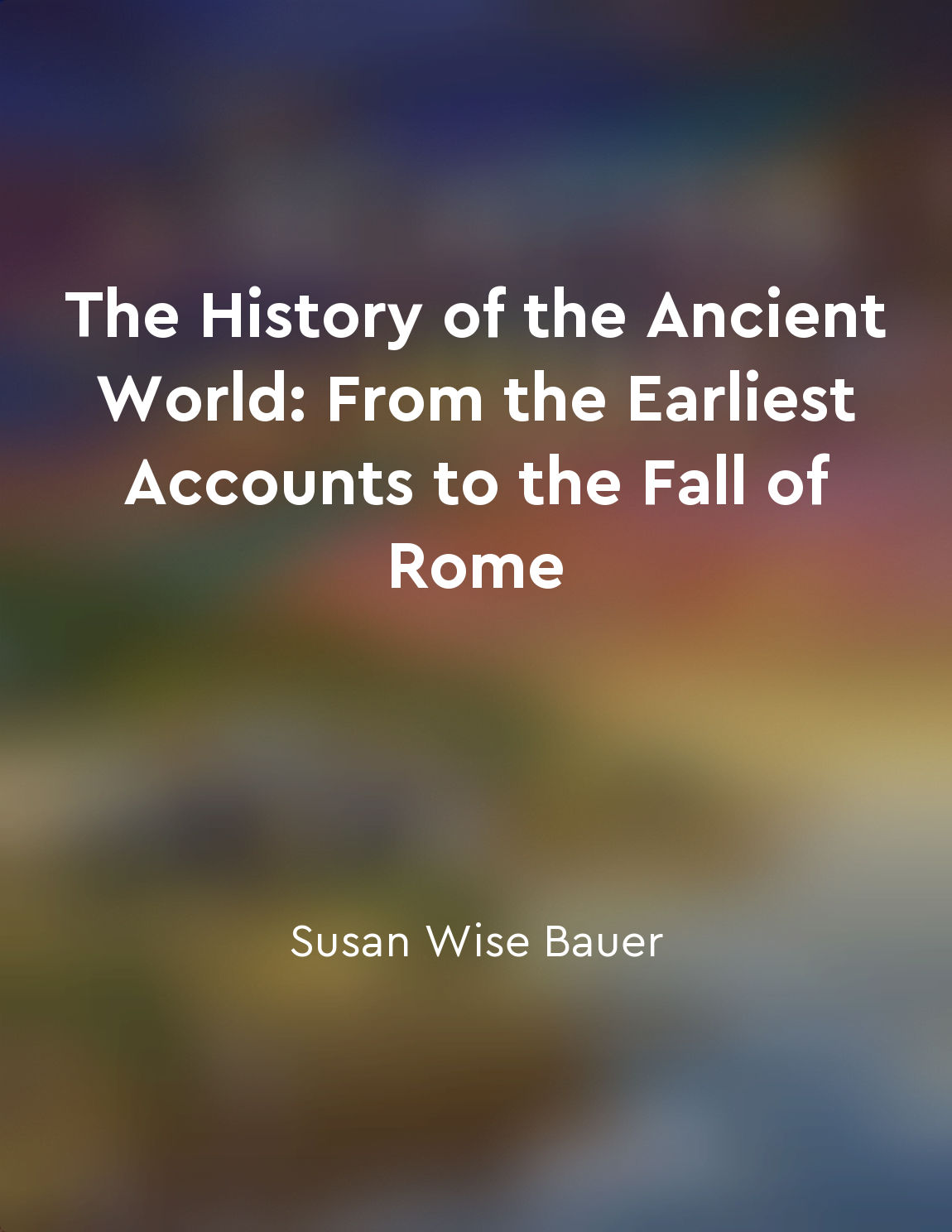Roman Empire's vulnerability to disease from "summary" of The Fate of Rome by Kyle Harper
The Roman Empire's vulnerability to disease was a critical factor in shaping its fate. The interconnected world of the Roman Empire facilitated the spread of infectious diseases, as people, goods, and germs moved along a vast network of roads and sea routes. This increased connectivity meant that once a disease emerged in one part of the empire, it could quickly spread to other regions, creating widespread outbreaks. One of the most devastating diseases to afflict the Roman Empire was the Antonine Plague, which struck in the second century AD. This pandemic, likely caused by smallpox or measles, decimated the population and weakened the empire's ability to defend its borders and maintain order. The Antonine Plague was followed by other outbreaks, such as the Plague of Cyprian in the third century AD, further straining the empire's resources and resilience. The Roman Empire's urban centers were particularly vulnerable to disease, as crowded living conditions, poor sanitation, and limited access to clean water created ideal breeding grounds for pathogens. Diseases such as typhoid fever, dysentery, and malaria thrived in these environments, taking a heavy toll on the population. The Roman authorities attempted to address these public health challenges through measures such as aqueducts, sewers, and public baths, but these efforts were often insufficient to prevent outbreaks. The Roman army, a symbol of the empire's might and power, was also affected by disease. Soldiers stationed in remote outposts and engaged in frequent campaigns were at high risk of contracting infectious diseases. Military campaigns themselves could serve as vectors for disease transmission, as troops moved through regions with different disease profiles and interacted with local populations. In addition to the direct impact of disease on the population and the military, epidemics also had broader social and economic consequences. Labor shortages caused by high mortality rates disrupted agricultural production and economic activity, leading to food shortages, inflation, and social unrest. The disruption caused by disease outbreaks weakened the empire's ability to respond to external threats and internal challenges, contributing to its eventual decline and fall.- The Roman Empire's vulnerability to disease was a significant factor in shaping its fate. The interconnected nature of the empire, the urban environment, the military's exposure to disease, and the broader social and economic consequences of epidemics all played a role in weakening the empire and contributing to its eventual collapse. In an age before effective medical treatments and public health measures, the impact of infectious diseases on the Roman Empire was profound and far-reaching.
Similar Posts
Economic disruptions and recovery
The Roman economy was a complex web of interconnected systems that allowed for the flow of goods, services, and resources acros...

Explore the enduring legacy of ancient Rome in Western civilization
The influence of ancient Rome on Western civilization is profound and far-reaching. The legacy of Rome can be seen in various a...
Food security and distribution challenges
Food security and distribution challenges loomed large over the ancient Roman world. The success or failure of the empire hinge...
The spread of slave revolts undermined Roman stability
The Roman Empire faced numerous challenges that threatened its stability, one of which was the spread of slave revolts. These r...
The spread of diseases like malaria has affected the success of colonization efforts
The relentless pursuit of global domination by European powers during the age of colonization was, paradoxically, hindered by a...
Migration patterns and disease transmission
The movement of people across vast distances in the ancient world was a powerful force shaping the destiny of societies. As pop...
Food security and distribution challenges
Food security and distribution challenges loomed large over the ancient Roman world. The success or failure of the empire hinge...

